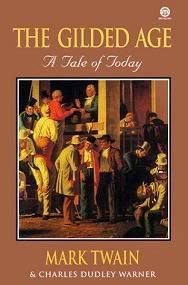Monday, July 23, 2007
The New Gilded Age

In 1985 there were just 13 US billionaires. Now there are more than 1,000. In 2005 the US saw 227,000 new millionaires being created. One survey showed that the wealth of all US millionaires was $30 trillion, more than the GDPs of China, Japan, Brazil, Russia and the EU combined.
More fun facts and figures are discussed in an Observer article about "richistan", which is the trendy term used to describe the mega rich in the U.S. Average workers wages barely keep pace with inflation and the very poor are climbing in numbers as well, but the rich have so much money right now that they are trying to find new ways to spend it. Time shares are not for the middle class on a budget any more.
Solstice has only about 80 members. Platinum membership costs them $875,000 to join and then a $42,000 annual fee. In return they get access to 10 homes from London to California and a private yacht in the Caribbean, all fully staffed with cooks, cleaners and 'lifestyle managers' ready to satisfy any whim from helicopter-skiing to audiences with local celebrities. As the firm's marketing manager, Cain knows what Solstice's clientele want. 'We are trying to feed and manage this insatiable appetite for luxury,' Cain said with pride.
How did people get so rich at a time when others were struggling? The decline in labor unions, and subsidies for the wealthy are big factors. The tax code has encouraged wealth to stay with wealthy families now for generations. John Rockefeller the first ridiculously wealthy billionaire was worth less in today's dollars than each of the five Wal-Mart heirs.
In the Fifties the proportion of federal income from company taxes was 33 per cent, by 2003 it was just 7.4 percent. Some 82 of America's largest companies paid no tax at all in at least one of the first three years of the administration of President George W Bush.
By our reduction in taxes on corporations and the mega wealthy we have encouraged money hoarding by the wealthy. In the 1950's, when the top tax rate was around 90%, and corporations paid more in taxes, it often made better economic sense, once a person was just nicely well off, to pay more in salary, to invest more in long term growth rather than dividend checks and buying yachts.
The article goes on to mention Warren Buffett's current lamantation that he paid only 17% in taxes last year, while his secretary paid 30%. Something has to be done, or we will either wind up with depressions like the 1890's and 1920's, when disparity in wealth was created like today. We could also have a revolution.
But anybody can become rich, right? Wrong. There is less economic mobility in the U.S. right now than in most European countries. When our tax code was set up with the inheritance tax, that meant less taxes on everybody else. If money is kept with the spoiled heirs of industrialists instead, it actually is worse for the economy. They are out buying $40,000 handbags living off investments. They aren't creating small businesses. They aren't creating the new ideas, products, that grow the economy.
If the democratic party was ever brave enough, they would meekly point out that our tax code is highly distorted, and the way we are doing things now have been done in the past, and always led to poor results.
The solution isn't communism, or hard socialism, it's fairness. The mega wealthy will still be wealthy beyond most people's dreams. Under a fair tax code, they will think twice about buying their seventh mansion, because the upkeep would be a bit expensive.
I feel their pain.
Posted by
trifecta
at
7:30 AM
![]()
Labels: gilded age, richistan
Subscribe to:
Comment Feed (RSS)



|